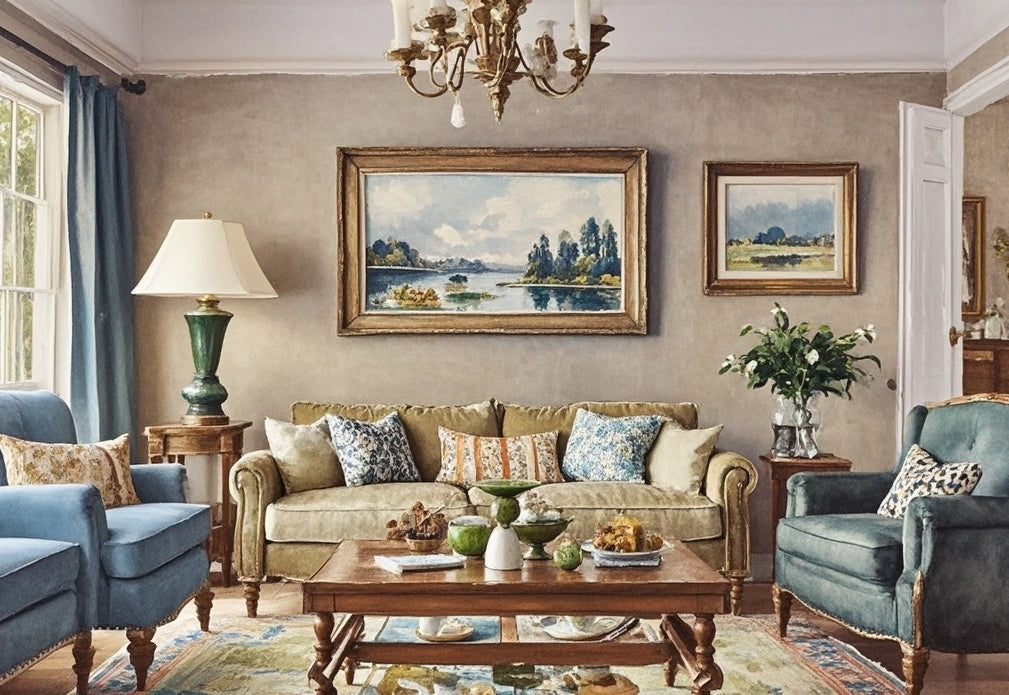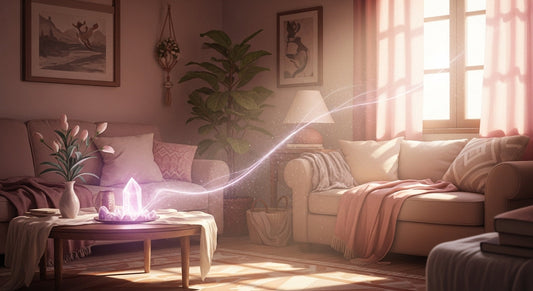
2025 Feng Shui Taboos in Living Room
Introduce the significance of living room in feng shui and its role as an important space in a home.
The living room holds significant importance in feng shui as it is considered a central space within a home. In feng shui, which is an ancient Chinese practice that focuses on the harmonious arrangement of space to promote positive energy flow, the living room plays a crucial role.
It serves as a gathering place for family and friends, where social interactions and relationships are nurtured. A well-designed living room according to feng shui principles can enhance the overall well-being and harmony of the household.
The living room is often seen as a reflection of the family's energy and prosperity. It is believed that the positive energy or "chi" should flow freely in this space. A clutter-free and organized living room is essential as clutter can block the flow of energy.
In feng shui, the living room should have a balanced and harmonious layout. The furniture placement is crucial. For example, large furniture pieces should be placed against walls to provide a sense of stability and support. This is in line with the principle that everything should have a solid foundation.
The shape of the living room also matters. A square or rectangular living room is considered ideal as it represents stability and balance. If the living room has an irregular shape, it can be divided into separate areas using furniture or screens to create a more harmonious layout.
Moreover, the lighting in the living room should be sufficient. Bright and natural light is preferred as it brings positive energy and vitality. Avoiding dim or gloomy lighting is important as it can create a negative atmosphere.
The choice of colors in the living room also plays a role in feng shui. Different colors are associated with different elements and energies. For instance, warm colors like yellow and orange are often used in the south-facing living rooms as they represent fire and energy. Green is suitable for east-facing living rooms as it represents wood and growth.
In conclusion, the living room in feng shui is not just a physical space but a place where energy flows and influences the well-being of the family. By following feng shui principles, one can create a harmonious and positive living environment.
In living room feng shui, improper layout and furniture placement can indeed disrupt the energy flow. For instance, having furniture blocking the main entrance can create a sense of obstruction and hinder the smooth entry of positive energy. It is important to ensure that there is a clear pathway from the entrance to the main seating area. Another common mistake is placing furniture in a haphazard manner without considering the overall flow of the room. This can lead to a chaotic energy field and make the space feel uncomfortable.
If the living room has a beam overhead, it can cause a sense of oppression. According to feng shui principles, this can be remedied by installing a false ceiling to hide the beam or by using decorative elements such as plants or hanging crystals to diffuse the negative energy. Additionally, furniture should not be placed in a way that creates sharp angles or corners pointing towards people, as this can create a sense of unease and stress.
The impact of colors on the living room's feng shui is significant. Certain colors should be avoided as they can bring negative energy. Dark colors such as black and deep purple should be used sparingly as they can create a heavy and gloomy atmosphere. These colors can absorb light and energy, making the room feel less inviting. On the other hand, bright and vivid colors like red and orange should also be used in moderation. While they can add energy and excitement, too much of these colors can be overwhelming and cause restlessness.
Neutral colors like beige and gray are often considered safe choices as they create a calm and balanced environment. However, it is important to add pops of color through decorative items to avoid a bland and lifeless space. For example, adding a few green plants or a colorful throw pillow can bring in positive energy.
The choice of decorative items is crucial in living room feng shui. Avoid placing sharp or pointed objects such as knives or swords as they can create a sense of aggression and conflict. Also, avoid displaying pictures or sculptures of fierce animals as they can bring negative energy. Instead, choose decorative items that are soft and rounded, such as crystals, candles, and vases. These items can help to create a harmonious and peaceful atmosphere.
In addition, be careful with the placement of mirrors. Mirrors can amplify energy, so they should be placed strategically. Avoid placing mirrors opposite the main entrance or in a way that reflects clutter or negative images. Also, avoid using broken or cracked mirrors as they can bring bad luck. By choosing the right decorative items and placing them properly, one can enhance the positive energy flow in the living room.
Adhering to feng shui taboos in the living room can bring numerous positive effects on well-being, harmony, and prosperity. When these taboos are followed, it creates a harmonious living environment that promotes a sense of calm and relaxation. This can have a significant impact on mental health and overall well-being.
For example, by avoiding having furniture block the main entrance and ensuring a clear pathway, positive energy can flow freely into the living room. This can lead to a feeling of openness and welcome, making it easier for people to enter and interact. It also allows for a smooth flow of energy throughout the space, which is believed to enhance the overall atmosphere.
Proper color choices can also contribute to well-being. By avoiding dark colors that create a heavy atmosphere and using neutral colors with pops of color, the living room becomes a more inviting and pleasant place to be. This can have a positive impact on mood and can make people feel more comfortable and at ease.
The careful selection of decorative items can further enhance harmony. Soft and rounded objects like crystals, candles, and vases create a peaceful atmosphere. Avoiding sharp or pointed objects and fierce animal images reduces aggression and conflict. Mirrors placed strategically can amplify positive energy and create a sense of spaciousness.
In terms of prosperity, following feng shui taboos is believed to attract positive energy and opportunities. A clutter-free living room represents an organized and efficient lifestyle, which can lead to better decision-making and increased productivity. The balanced layout and proper furniture placement can also symbolize stability and support, which can contribute to financial stability and success.
According to some research, environments that are harmonious and positive can have a positive impact on our subconscious mind. This can lead to increased motivation, creativity, and a more positive outlook on life. For example, studies have shown that people in well-designed and harmonious environments are more likely to be productive and have better mental health.
In conclusion, following feng shui taboos in the living room can bring significant benefits in terms of well-being, harmony, and prosperity. By creating a harmonious living environment, we can enhance our quality of life and attract positive energy and opportunities.


